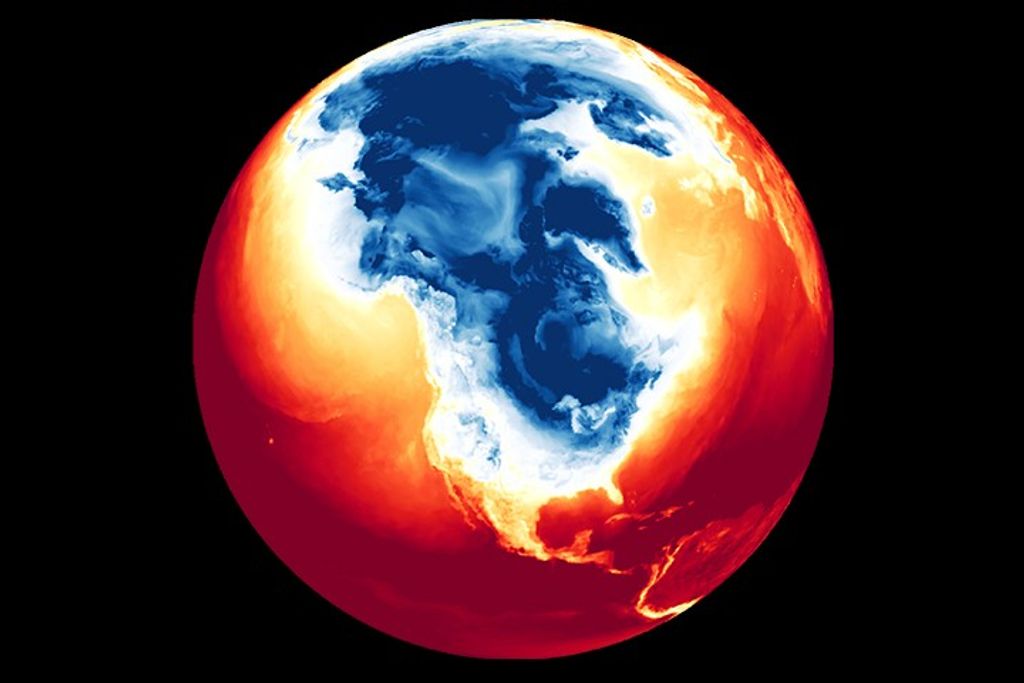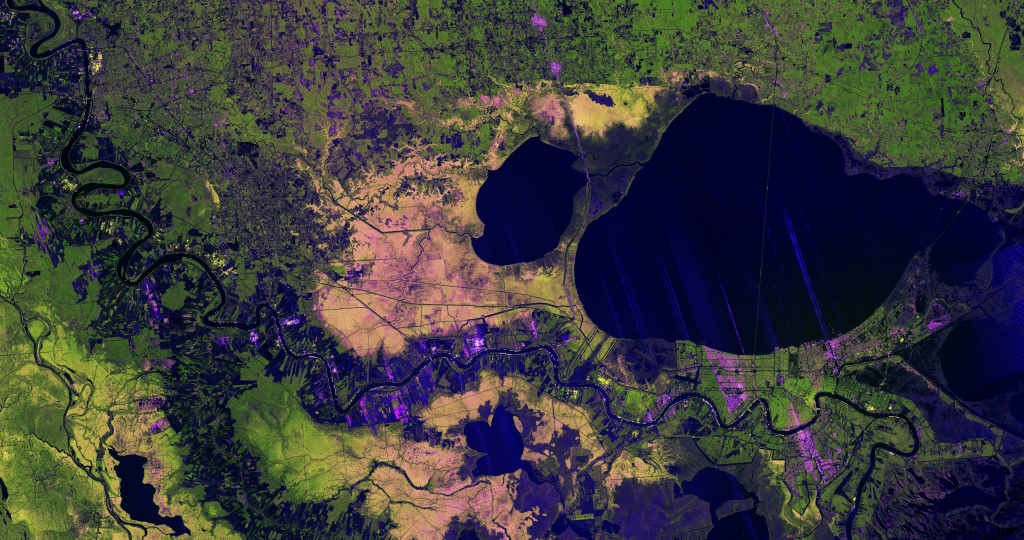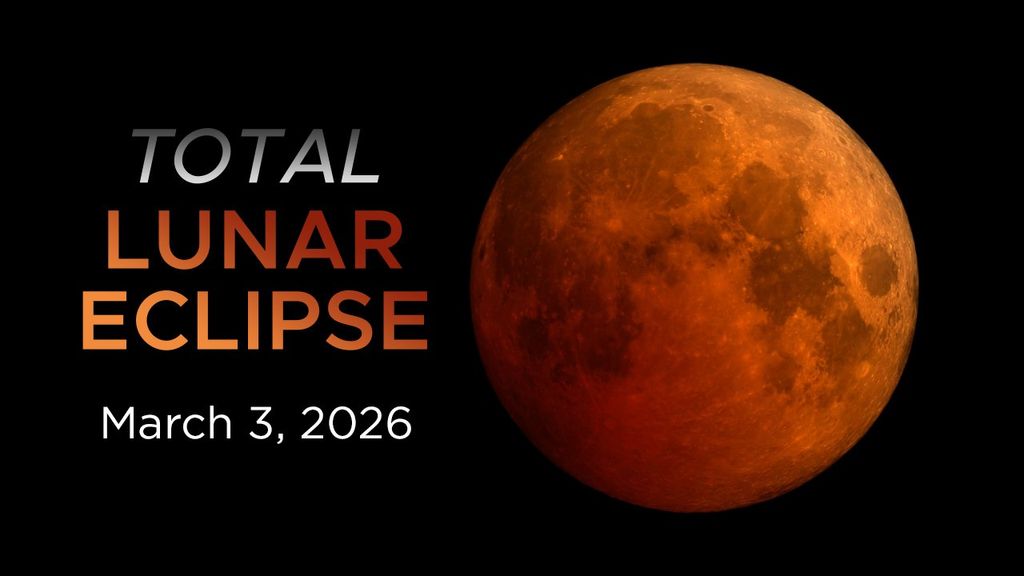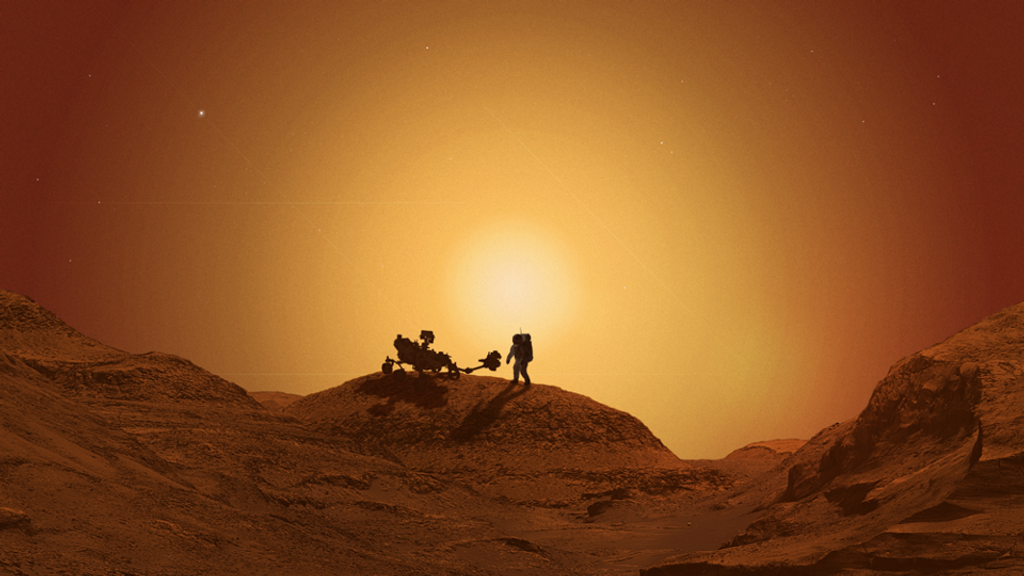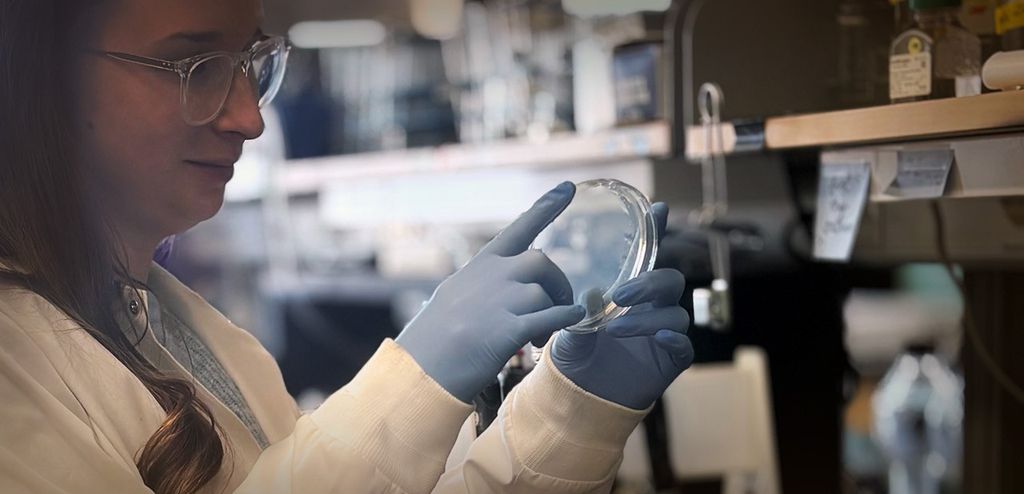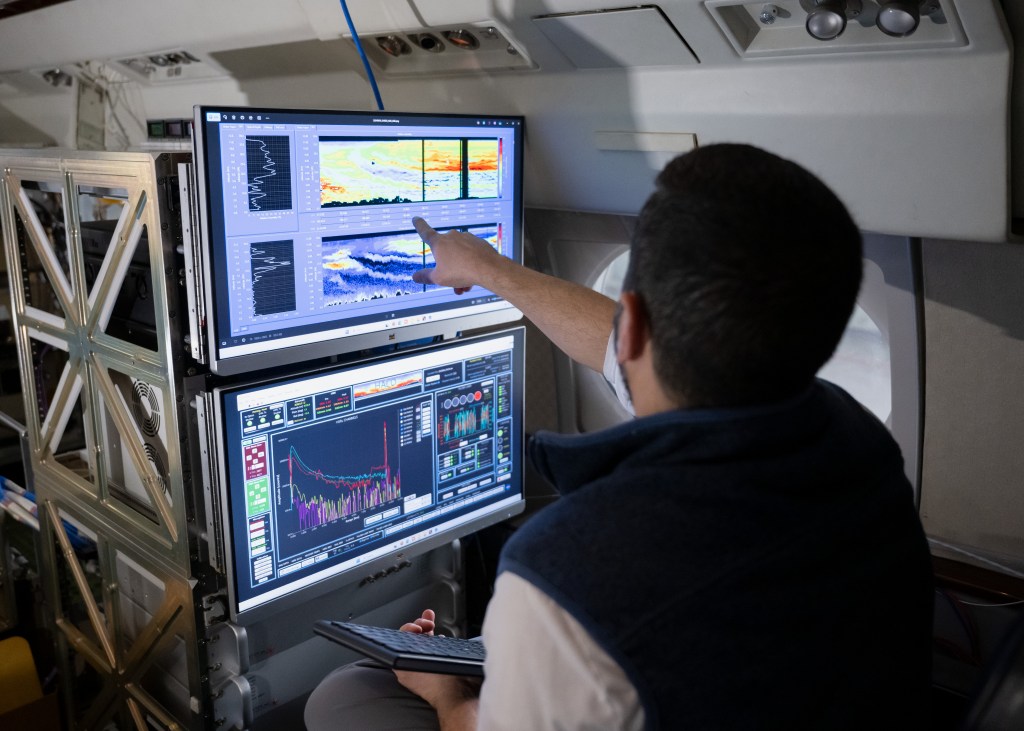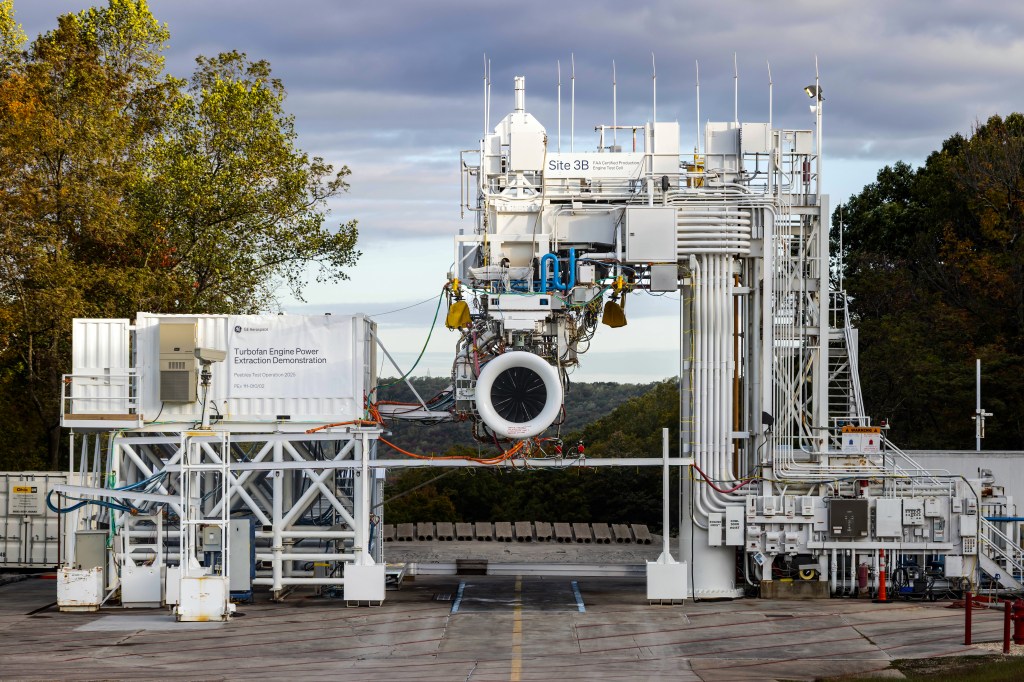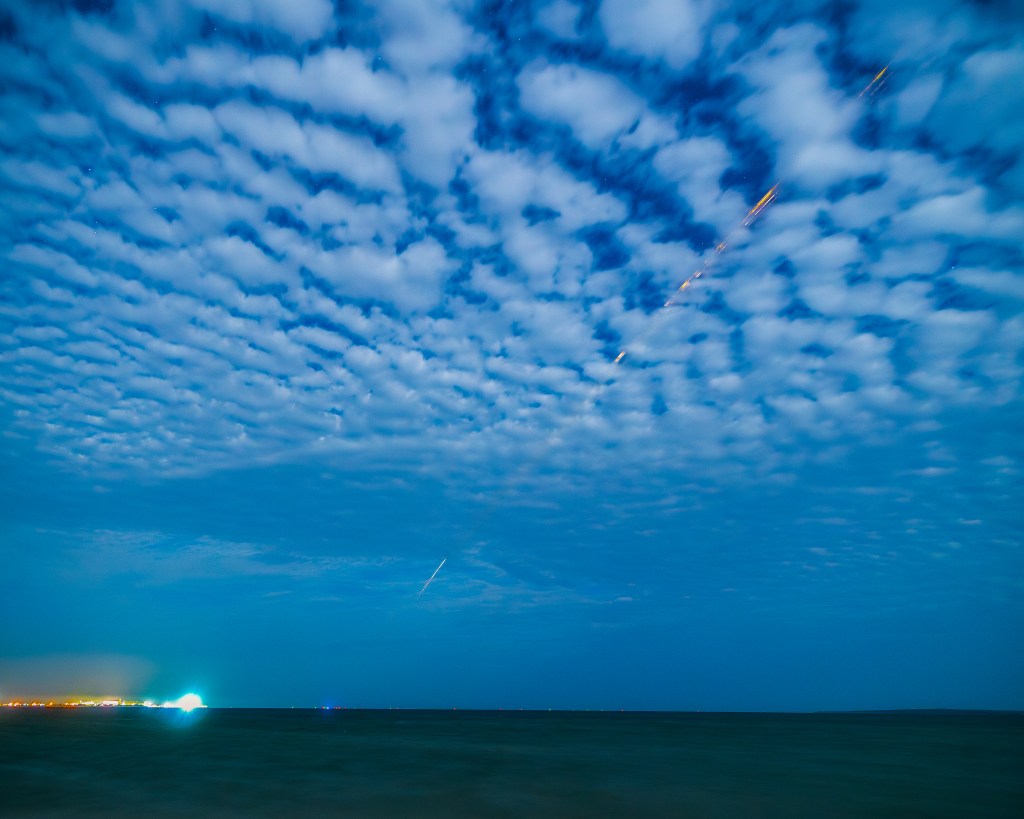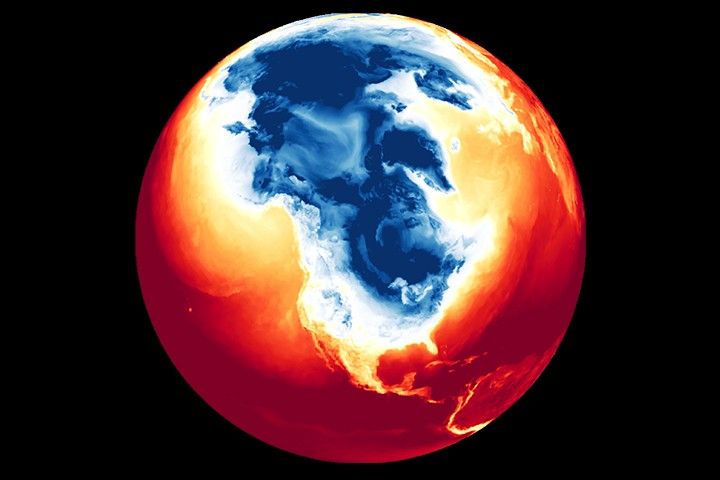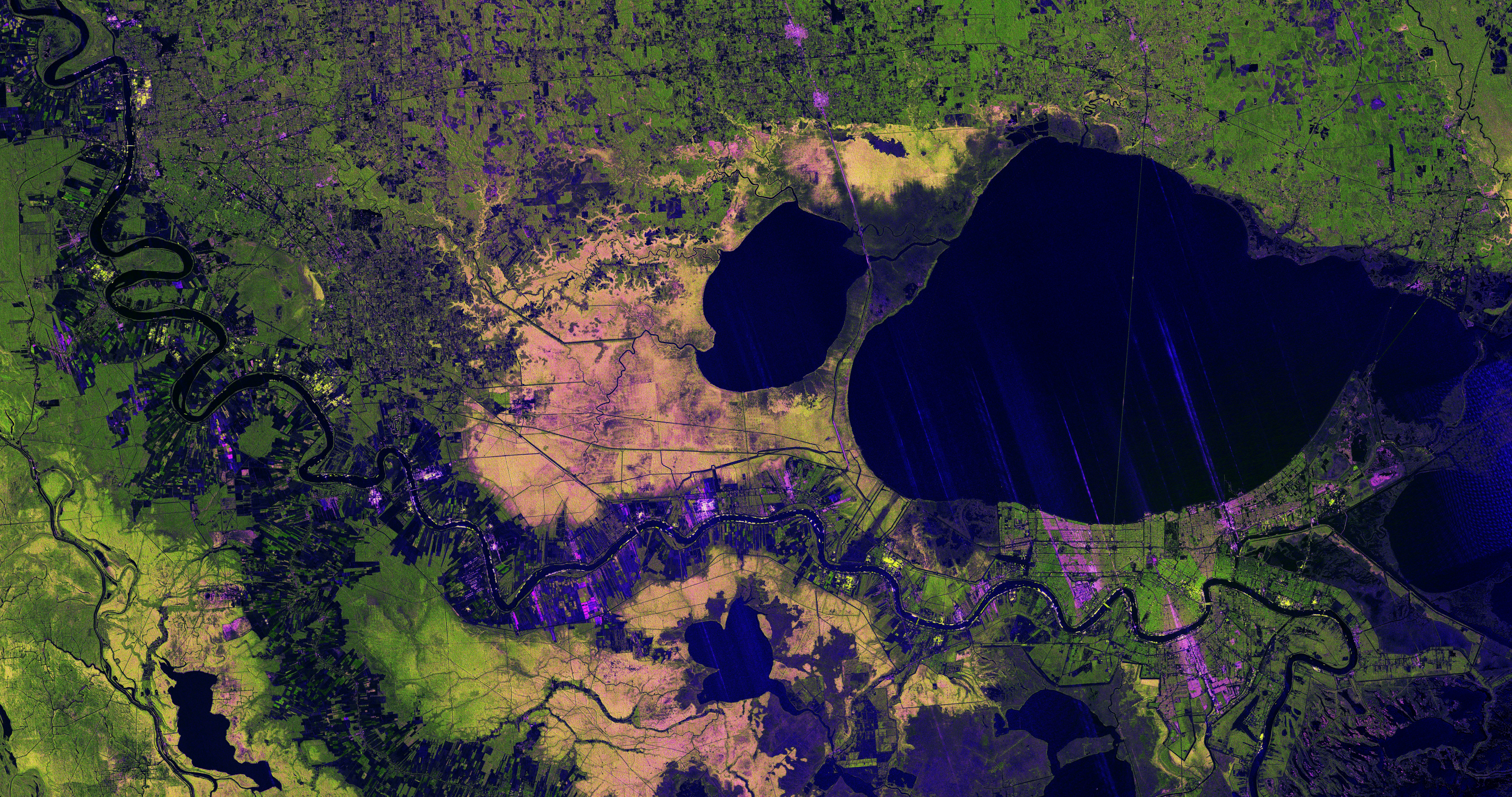A year-long professional development experience for teachers resulted in participation of 10 student teams at Global Learning & Observations to Benefit the Environment (GLOBE) student research symposia. Teachers from the ENGAGE (Earth, NASA, GLOBE, and Guided Explorations) GLOBE Mission Earth 2023-2024 virtual educator cohort have been connecting throughout the school year to learn GLOBE protocols, identify opportunities for students to present GLOBE research, and to share lessons learned. The NASA Science Activation Langley Research Center (LaRC) team led the ENGAGE (Earth, NASA, GLOBE, and Guided Explorations) GLOBE Mission Earth 2023-2024 program, in collaboration with the University of Toledo.
The ENGAGE cohort started with a 3-day virtual workshop in the summer of 2023, providing GLOBE protocol training to 16 teachers across the United States and its territories. Then, the participating cohort continued meeting with the LaRC team once a month, learning about additional GLOBE and My NASA Data resources. Teachers also met one-on-one with the LaRC team to receive support towards engaging students in GLOBE research projects. The LaRC team also connected virtually with 11 ENGAGE teachers’ student groups, providing feedback to students about their Nature Notes and their research. So far, 42 students have published their Nature Notes on the GLOBE Mission Earth Student Research webpage.
ENGAGE teachers led student teams to present their research at several GLOBE symposia. Two student teams submitted their research projects to the GLOBE International Virtual Science Symposium; three student teams presented at the GLOBE Northeast & Mid-atlantic Student Research Symposium (SRS) at Berks Nature, in Reading, PA; two student teams showed their work at the GLOBE Southwest SRS at the All Saints’ Episcopal School, in Fort Worth, TX; two student teams shared about their research at the GLOBE Midwest SRS at the Toledo Zoo, in Toledo, OH; and one student team presented at the GLOBE Pacific & Northwest SRS at the Jet Propulsion Laboratory, in Pasadena, CA. Four of these student teams received special recognition from the reviewers for their outstanding projects, and three student teams have been selected to participate in the Student Research Experience at the GLOBE Annual Meeting that will take place in Fredonia, NY, 15–18, 2024, with funding support provided by YLACES (Youth Learning as Citizen Environmental Scientists).
Melvindale High School Teacher (Allen Park, MI) Victoria Vock had this to say: “This was an incredible program that truly values hands-on learning and mentorship! Students were provided with the opportunity to engage in scientific research alongside professionals which helped to foster a deeper understanding of science while cultivating valuable skills like critical thinking, problem-solving, and effective communication. Programs like these not only inspire a love for learning but also empower the next generation of scientists and researchers.”
More details about the student research projects are provided below:
The following teams participated in the GLOBE International Virtual Science Symposium (IVSS):
Project: Chemical Signatures of Environmental Change: Unraveling Nature’s Responses
School: Melvindale High School
State: Michigan
Educator: Victoria Vock
Project: What Types Of Clouds Are Most Common In Winter In Parish, NY In The Morning?
School: APW Jr/Sr HS
State: New York
Educator: Jessica Halsey
The following teams participated in the 2024 GLOBE Student Research Symposium (SRS):
SRS by Region: Southwest
Project: Relative Humidity's Effect on Cloud Formation
School: Corpus Christi Catholic School
State: Kansas
Educator: Humbelina Harper
Project: A Study on Temperature and Typhoons
School: Lamar Middle School
State: Texas
Educator: Johanna Yeldell
Project: The Total Eclipse Temperature Change
School: Lamar Middle School
State: Texas
Educator: Johanna Yeldell
SRS by Region: Northeast and Mid-Atlantic
Project: Does Car Idling in rural New Jersey affect air quality? Recognized for Community Impact and Engagement
School: Reading Fleming Intermediate
State: New Jersey
Educator: Lisa Coster
Project: Onondaga County River Quality, Recognized for Community Impact and Engagement*
School: APW Jr/Sr HS
State: New York
Educator: Jessica Halsey
Project: Oswego County River Quality, Recognized for Community Impact and Engagement*
School: APW Jr/Sr HS
State: New York
Educator: Jessica Halsey
SRS by Region: Midwest
Project: Climate Change in Michigan, Recognized for Community Impact*
School: Melvindale High School
State: Michigan
Educator: Victoria Vock
Project: Phragmites: Friend or Foe?
School: Melvindale High School
State: Michigan
Educator: Victoria Vock
SRS by Region: Pacific
Project: Weather's Effect on Contrails, Honorable Mention
School: John Adams Middle School
State: California
Educator: Alana Rattan
* Selected to present at the GLOBE Annual Meeting
The 2024–25 ENGAGE GLOBE Mission Earth Teacher Cohort is kicking off in July 2024, welcoming a new group of educators who will be trained in GLOBE protocols and who will continue meeting monthly with the NASA Langley GLOBE Partnership to learn more about GLOBE and My NASA Data resources and to receive support towards the implementation of GLOBE in their classrooms. The GLOBE Mission Earth project is supported by NASA under cooperative agreement award number NNX16AC54A and is part of NASA’s Science Activation Portfolio. Learn more about how Science Activation connects NASA science experts, real content, and experiences with community leaders to do science in ways that activate minds and promote deeper understanding of our world and beyond: https://science.nasa.gov/learn
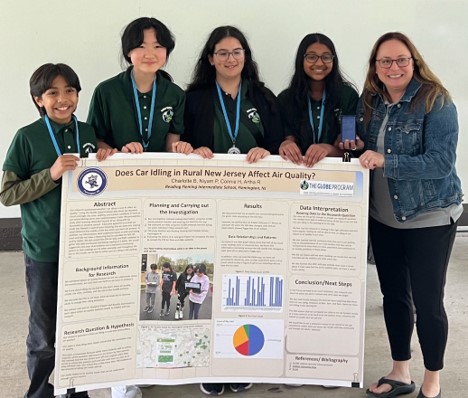
Students from Reading Fleming Intermediate School (Flemington, NJ) receive the “Community Impact and Engagement” award at the GLOBE Northeast and Mid-Atlantic SRS that took place at Berks Nature in Reading, PA.


